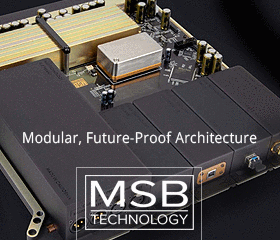Do you think among all the great technology in it that it is immune to what Ethernet cable you plug into it? Or do you believe that it illuded John to get there?
What are you attempting to now say?
I know the microrendu design & the added value work is all on the USB side, not on the ethernet receiver end. The ethernet receiver is just a standard SBC (single board computer) - any SBC with networking functionality could have been used. This particular one was chosen because of it's powering requirements.
You obviously have no notion what is unique about this device & what it's USP is
The added value in the microrendu is in the area of USB transmission which uses the USB2412 USB hub chip, same as used in the Regen but now powered by linear regulators targeted towards RF usage, the LT3042 regulator. another LT3042 reg is used to power the 24MHz clock feeding the USB2412. No other computer uses such a USB transmission setup.
It is NOT a 24.01MHz clock as you claim in your picture as anybody who had the first inking about how digital transmission works would know.
These rookie mistakes are what constantly reveal your lack of knowledge & as I said before, you are better off not posting to save yourself further embarrassment. You already made a claim on WBF that asynchronous USB retransmitted packets found to be in error (& tried to pin this error on John Swenson), now you think USB clocking is done on 24.01MHz clocking - I mean jeez, Amir - how much more basic knowledge do you wish to reveal?
You've tried to make numerous claims, all of which have been found to be lacking in basic knowledge of what you are talking about. I'm sorry for this but if you continue to comment in ignorance & arrogance about issues in which you are patently clueless, I will continue to reveal your lack of knowledge - it's necessary to clean the misinformed crap off threads less readers are led astray by scientism.
I suggest you post this on your scientism forum where I'm sure everyone will mumble agreement & cheer you on.
















